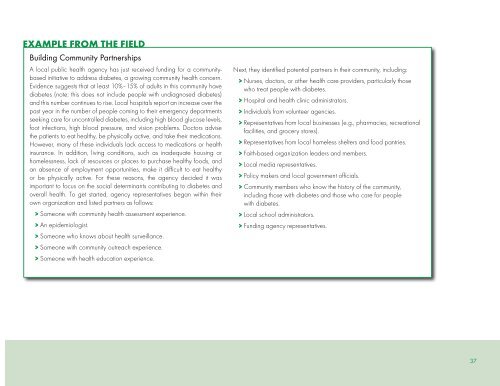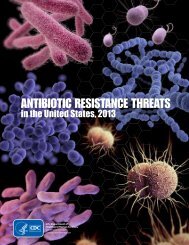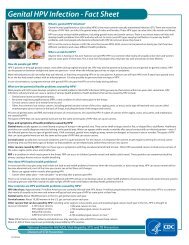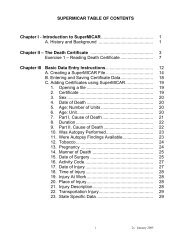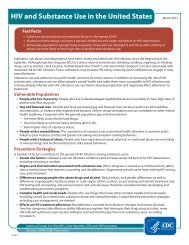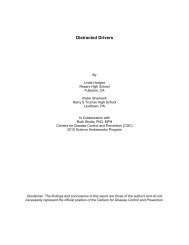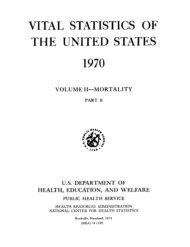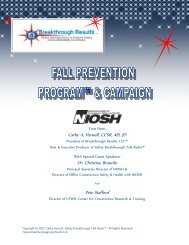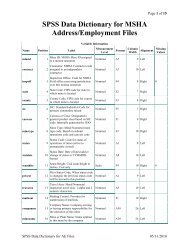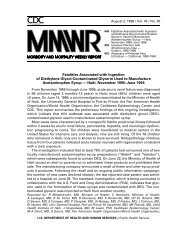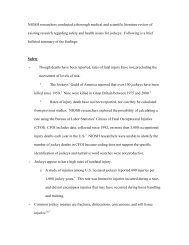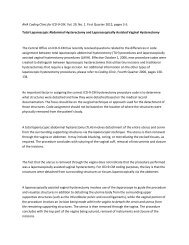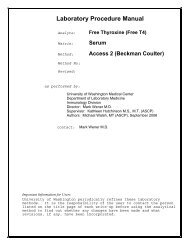Promoting Health Equity - A Resource to Help Communities Address ...
Promoting Health Equity - A Resource to Help Communities Address ...
Promoting Health Equity - A Resource to Help Communities Address ...
You also want an ePaper? Increase the reach of your titles
YUMPU automatically turns print PDFs into web optimized ePapers that Google loves.
ExAMPLE FROM THE FIELD<br />
Building Community Partnerships<br />
A local public health agency has just received funding for a communitybased<br />
initiative <strong>to</strong> address diabetes, a growing community health concern.<br />
Evidence suggests that at least 10%–15% of adults in this community have<br />
diabetes (note: this does not include people with undiagnosed diabetes)<br />
and this number continues <strong>to</strong> rise. Local hospitals report an increase over the<br />
past year in the number of people coming <strong>to</strong> their emergency departments<br />
seeking care for uncontrolled diabetes, including high blood glucose levels,<br />
foot infections, high blood pressure, and vision problems. Doc<strong>to</strong>rs advise<br />
the patients <strong>to</strong> eat healthy, be physically active, and take their medications.<br />
However, many of these individuals lack access <strong>to</strong> medications or health<br />
insurance. In addition, living conditions, such as inadequate housing or<br />
homelessness, lack of resources or places <strong>to</strong> purchase healthy foods, and<br />
an absence of employment opportunities, make it diffcult <strong>to</strong> eat healthy<br />
or be physically active. For these reasons, the agency decided it was<br />
important <strong>to</strong> focus on the social determinants contributing <strong>to</strong> diabetes and<br />
overall health. To get started, agency representatives began within their<br />
own organization and listed partners as follows:<br />
> Someone with community health assessment experience.<br />
> An epidemiologist.<br />
> Someone who knows about health surveillance.<br />
> Someone with community outreach experience.<br />
> Someone with health education experience.<br />
Next, they identifed potential partners in their community, including:<br />
> Nurses, doc<strong>to</strong>rs, or other health care providers, particularly those<br />
who treat people with diabetes.<br />
> Hospital and health clinic administra<strong>to</strong>rs.<br />
> Individuals from volunteer agencies.<br />
> Representatives from local businesses (e.g., pharmacies, recreational<br />
facilities, and grocery s<strong>to</strong>res).<br />
> Representatives from local homeless shelters and food pantries.<br />
> Faith-based organization leaders and members.<br />
> Local media representatives.<br />
> Policy makers and local government offcials.<br />
> Community members who know the his<strong>to</strong>ry of the community,<br />
including those with diabetes and those who care for people<br />
with diabetes.<br />
> Local school administra<strong>to</strong>rs.<br />
> Funding agency representatives.<br />
37


